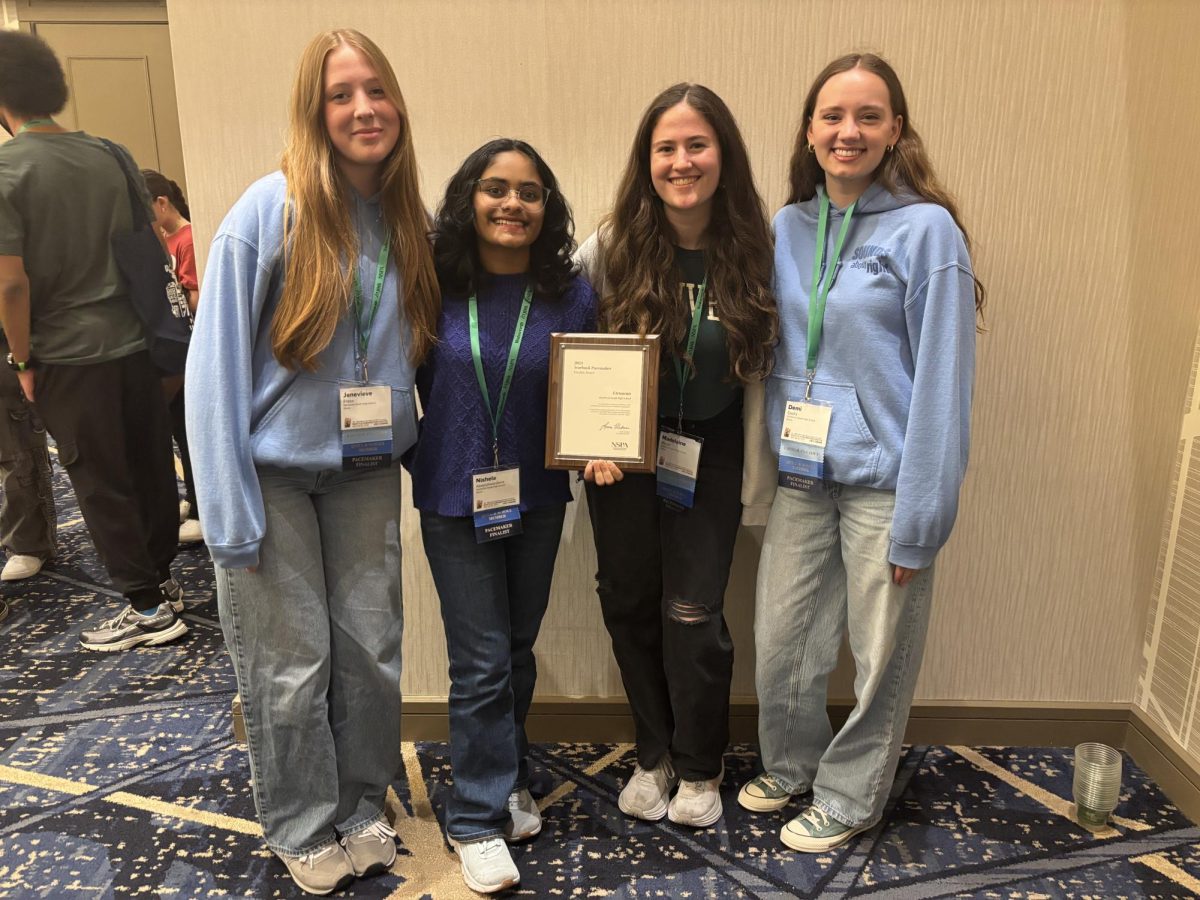On Feb. 28, a committee of 39 instructors and administrators decided to recommend to the Board of Education that South switch to an AB block schedule for the 2014-2015 school year.
Principal Dr. Brian Wegley originally said that Feb. 28 was a tentative date for making a decision on the AB
Block Schedule because he was not sure if a final decision could be reached.
“Our goal [was] to run the process and set up for this discussion, which [was] a consensus building process with individuals that [included] two members from every department and the instructional supervisors for every department,” Wegley said.
According to Anne LePage, chair of the Schedule Evaluation Committee (SEC), the group revisited major implications surrounding the AB block schedule during the Feb. 28 meeting.
“We decided when we were looking at the schedules that there were really three filters that we should think about,” LePage said. “One would be what impact does time have on student growth, and we certainly don’t want to change anything that might impact student growth. The second filter we looked at was what might the change in schedule do to our culture here and who we are. And the third filter that we looked at was what the schedule would do to social [and] behavioral issues here at Glenbrook South.”
In order to gain information prior to the Feb. 28 meeting, surveys were handed to teachers in department meetings, according to English teacher Catherine Klahn. She said that each teacher chose one of the five options presented, ranging from complete support of the change to a block schedule to no support for the change.
According to Terrence Jozwik, Social Studies instructional supervisor, the Social Studies Department was leaning in favor of the AB Block Schedule, where students have 90-minute classes every other day and a built-in lunch period.
“We have 25 members in the department, and I think out of those 25, I would say 18 were leaning towards being in favor of the AB Block Schedule,” Jozwik said. “[…] So taking a look at those numbers, Social Studies seems to be fairly strongly in favor of the AB Block .”
Jozwik mentioned that one of the major reasons the Social Studies Department teachers leaned toward the AB Block was the longer periods.
“They were leaning towards deeper engagement in whatever subject of social studies [they] taught and [in] the lesson of the day so that we can continue on instead of start and stop, start and stop,” Jozwik said.
Phil Gartner, Math Department instructional supervisor, mentioned some aspects of the eight-period schedule that math teachers see as important that will be lacking in the block schedule.
“The belief in a lot of the Math Department is that it is better to see your students every day and have that continual reinforcement, to have [shorter] lessons […] and be able to distribute that practice over 180 school days and 180 assignments instead of combining it into 90 days,” Gartner said.
In addition to the teacher survey and department meetings that took place, a cross-section of the student body was brought together to discuss the block schedule versus the eight-period schedule, according to Klahn.
“In all cases, groups were asked to generate thoughts on what the current schedule does well, challenges that the current schedule imposes, the benefits of a potential block schedule and potential challenges of a block schedule,” Klahn said. “Discussions were organic.”
According to Wegley, South’s block schedule will slightly differ from that of North’s and be implemented in the 2014-2015 school year.
“It would have about 10-minute passing periods, 90- minute periods, 93 minutes in the first period so that we could have announcements built in without cutting into the class period,” Wegley said. “The basic features will be the same, but how we use the free block […] to make sure we are providing maximum support for students […] I am certain that would be different.”
Looking forward, Benedict Hussmann, social studies teacher, anticipates that, over the next two years, teachers will have to plan for a change in their classroom atmospheres to keep students engaged in class.
“We’re going to have to probably integrate more group work, more student participation, more in-class writing that then gets discussed,” Hussmann said. “One of my goals for the longer period of time is to make it a much more student-centered classroom rather than a teacher-centered classroom […] that transition may take a few years, but I think we’ll get to a place where we feel really good about the quality of our teaching on the block.”





